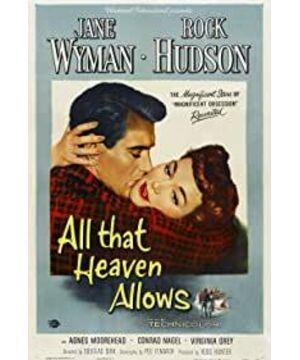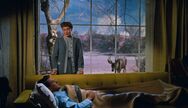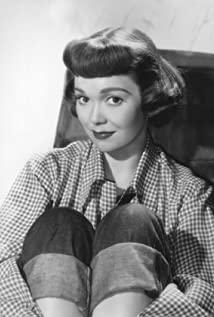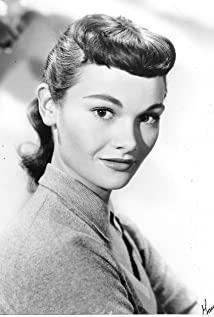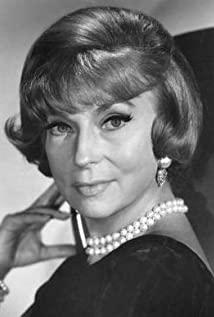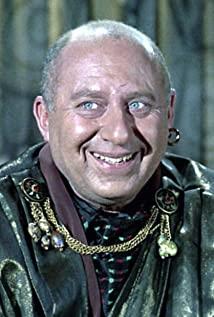The sparks created by Jane Wyman and Rock Hudson's opponents can be described as "a meeting of the golden wind and jade dew, it is better but countless in the world." In the complex inner world of the characters, they are almost impeccable. A simple love between men and women becomes impermanent because of the constraints of social identity, status, age, and traditional moral values. Rich widows fall in love with young gardeners, whether in a small American town that was conservative half a century ago, or in a modern society where material desires and free and open ideas are rampant, there will be an uproar and changes in the concept of the times, but in fact it has an impact on the hearts of the parties involved. The blow never changed. Douglas Sirk used strong colors and chapter-style narrative techniques to critique the traditionally conservative but hypocritical and vulgar middle-class social circle in the small town. In the age before television and the Internet, large and small gatherings have almost become people. The best way of entertainment also makes gossip more lethal than in any era. Jane Wyman fell in love with Rock Hudson. Although it was not as shocking as Yang Guo and Xiaolongnv, it was enough to cause an uproar in the town. Even the seemingly enlightened daughter and son strongly opposed it. Jane Wyman fell into isolation, love and social recognition. The tug of war has never been a close match. Through the use of light and shadow, Douglas Sirk shows the widow’s unpredictable mentality and emotional ups and downs one by one on the screen. In a scene where the two meet in the Rock Hudson hut, Jane Wyman is affected by the pressure and constraints of moral values, and her sweet love is quickly replaced by cold pain. She turns from the warm and yellow fire into the dark, with the side light in the dark. A line of light and dark was projected on her body, symbolizing her inner pain. Douglas Sirk used light and shadow to interpret his consistent sense of invisible violence and tragedy. No wonder Fassbender was impressed by him.
I don’t like the end of the movie. Rock Hudson wakes up from the coma after falling off the cliff, and clasps Jane Wyman's hands, which is finally desperate for love. I think it is far better to let Jane Wyman wait and wait for Rock Hudson who doesn’t know when he will wake up. It will be more meaningful, and it will accelerate the spread of the sense of helplessness and impermanence, but I think even if Douglas Sirk has such courage, he will eventually be ruined by Hollywood's business-oriented scissors and replaced by the same Happy Ending.
View more about All That Heaven Allows reviews


